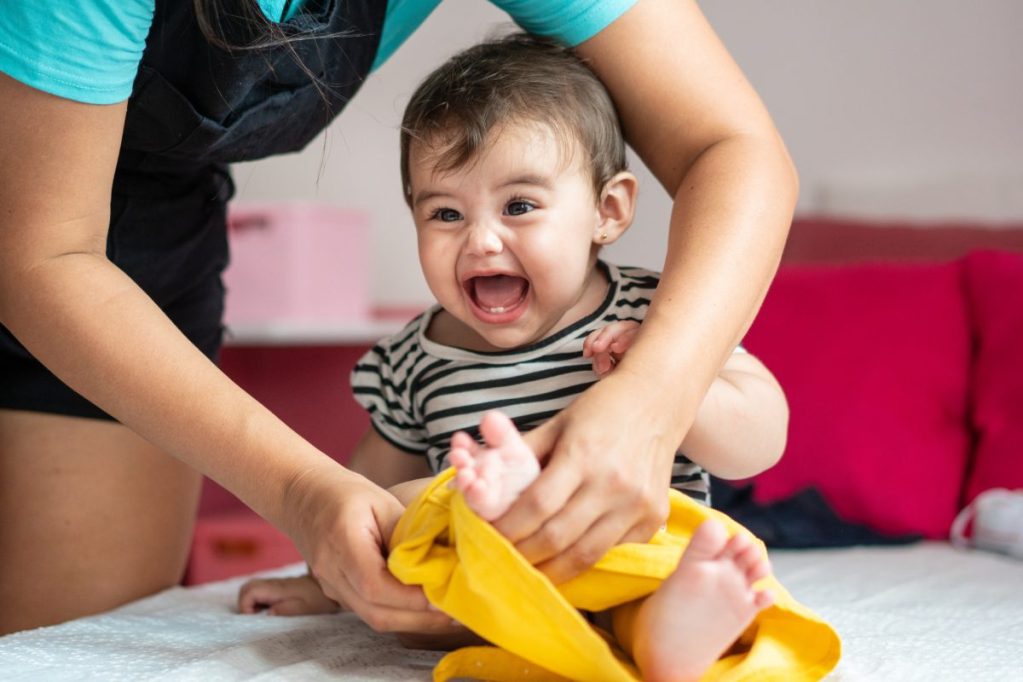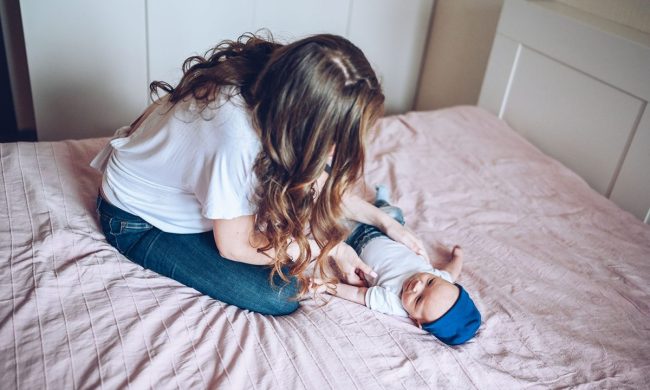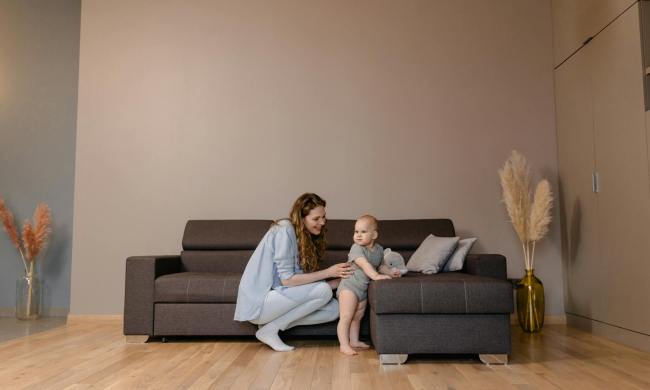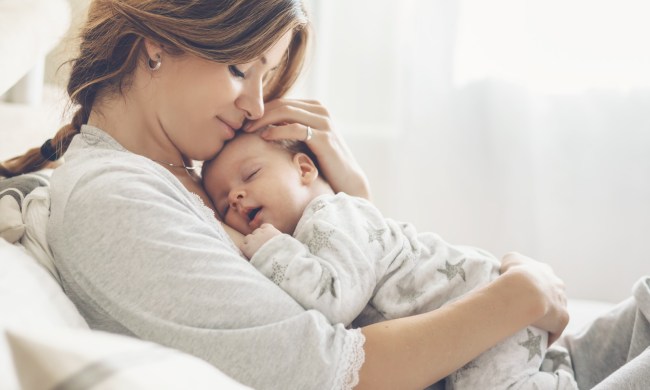The first year of your baby’s life is full of exciting milestones. Whether it’s rolling over or a baby’s first smile, every day seems to bring a new development. One milestone many parents anxiously await is their baby’s first words. Will it be “mama” or “dada?” The more important question may be, “When do babies start talking?”
A baby’s speech development actually begins at birth. The sounds they hear, including their parents talking, is a vital step in speech development. So, when should your baby be saying those exciting first words, and should you be worried if yours isn’t talking yet?
When do babies start talking?

As with all of those memorable milestones, when a baby begins to talk, will fall within a range. Most babies will say that treasured first word somewhere between 12 and 18 months. Once that first word comes out, it won’t be long before the baby is putting small words together like “up ma.”
Speech development is a lengthy process starting at birth. Crying is actually the first form of verbal communication. Babies cry to tell you what they need. Since babies are listening, they learn to associate the sounds around them early on with things like barks from the family dog. By 2 months old, most little ones will experiment with their lips, tongue, and palate, making those adorable cooing and gurgling sounds. These sweet sounds are actually the building blocks of your baby’s first words.
Baby babbling

From 4 to 6 months of age, those cute cooing and gurgling sounds will turn into babbling. Baby babbling is a major milestone in a child’s language development. Babbling is when your baby is making sounds that don’t seem to correspond to any words. Like the cooing and gurgling stages, your baby is trying out different sounds. While baby babbling may sound like nonsense to adults, it’s actually an important developmental stage for your child’s language skills.
This stage is where you may hear those ma-ma and da-da sounds. Babies are listening to you, and they do try to imitate the words you say even if it’s not coming out the same. So, if your baby is babbling “do” at the dog, finish the word. Parents and siblings are a baby’s first role model when it comes to speech.
From babbling to words

The period from 7 to 12 months is another substantial one for your baby’s developing language skills. You should start to notice them making repetitive sounds like “ga-ga.” Parents may also notice babies making sounds and pointing to something like “ca-ca” for the kitty. Babies might begin stringing sounds together for the same object such as saying “ba-ba” each time they have a bottle.
As your baby is learning to associate sounds with objects, be sure to keep repeating the words. Say cat when the baby is petting the family cat or blocks when you’re playing with blocks together on the floor. Hearing language through talking, music, and reading books helps babies develop their language skills.
What if your baby isn’t babbling?

Remember, a baby’s milestones are accomplished during a range. Most babies hit the babbling stages somewhere within the 4 to 6-month age range. If your baby isn’t babbling by the sixth-month checkup, ask your pediatrician. If your baby hits the cooing and gurgling stage a little later, then the babbling stage may begin a bit later, as well. Always err on the side of caution and ask.
How to help your baby start talking

The first thing to remember when waiting for that special first word is not to stress. When you stress, so does your little one. You can’t force your baby to say “mama” or “dada.” It will happen when your baby is ready. You can help your child with their language development by filling the house with music, talk, and fun. Babies are like sponges and are taking everything in. So, talk and sing to your baby. Read books in the bathtub, before naps, and at bedtime.
When to seek professional help

Early intervention can be crucial if your child is dealing with a speech delay. Some experts suggest that parents can often notice signs of a developmental delay as early as 3 months old. Although your baby won’t be talking or babbling at such a young age, it is important to monitor other milestones and make notes if they seem missing.
By their first birthday, your child should be using gestures to communicate if they aren’t using language skills. If your child reaches their second birthday and they still rely on gestures using only a few words, it may be time to see a speech therapist or speak to your pediatrician. By the age of three, you should be able to understand most of what your child is saying. There can be many causes of speech delays, from oral issues to hearing loss. If you feel your child isn’t reaching their speech milestones, contact your pediatrician.
When your baby is cooing and babbling, listen, even if it doesn’t make sense. That’s how they learn to listen. Don’t compare your baby to others, but if you are concerned, talk to your pediatrician. During the first year, you’ll be seeing the doctor every three months for well visits. Those visits are the perfect time to ask about your baby’s speech development if you’re worried.




